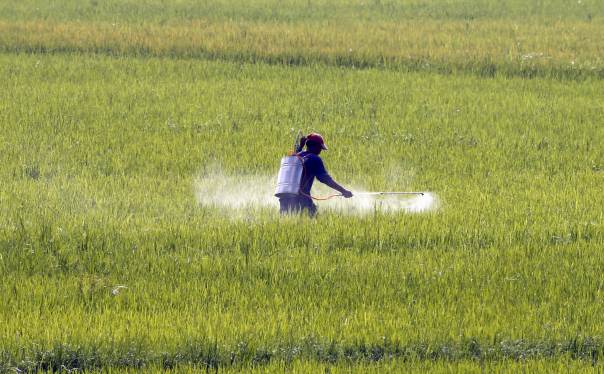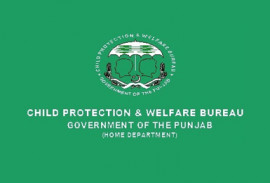
The study was conducted to assess the knowledge level of farmers on pest management practices and factors influencing the existing level of knowledge with respect to common practices.
The research was carried out by Christos A Damalas from Department of Agricultural Development, Democritus University of Thrace, Greece and Muhammad Khan from Department of Management Sciences, COMSATS Institute of Information Technology, Lahore, involved in conducting a survey on sixty-two vegetable farmers in Lodhran and Vehari districts of Punjab.
The research was based on the premise that the increased use of pesticides in vegetable production had enhanced potential risk of contamination of environment and long-term effects on society.
Toxic chemicals lace fruits, vegetables
Dosage and mixing pesticides
In Pakistan, farmers were routinely exposed to high levels of pesticides, usually much greater than consumers. This was often due to lack of awareness of farmers about application doses and methods of application. In addition, negligence or non-availability of proper guidance about pesticide application may be another reason, which may lead to the occurrence of pesticide residues on vegetables.
Further results revealed that the majority of the farmers, accounting for 85.5%, were mixing two or more pesticides in order to make the dose more potent.
The reasons for mixing pesticides were that the recommended rates were not effective due to a resurgence of pests to the chemicals and for a better control of different pests or diseases.
Level of knowledge
Most farmers, about 58.1%, had moderate levels of knowledge on the usage of pesticide. Whereas low levels of knowledge were observed on factors such as taking care of nozzles on pesticide sprayers, taking into account wind and crop stage at application.
Only 6.4% of the farmers showed high levels of knowledge and only 12.9% had access to information. Evidently, lack of knowledge made farmers to overuse pesticides, increase the risk of adverse health effects on themselves, consumers and the environment and threaten the sustainability of pest control.
Precautionary measures
Farmers' knowledge of precautionary measures when spraying was found to be average. Some farmers said that usually they covered their bodies when using harmful pesticides. As many as 60 percent of farmers said that they take a bath with soap after spraying pesticides, indicating their concern about precautionary measures.
5 fruits and vegetables that may make you fat
Choice of pesticides
According to the results, farmers’ choice of pesticides was primarily based on efficacy rather than safety. In this context, many farmers had the opinion that some of the current chemicals were less effective on some pests, persuading themselves to use mixtures. Farmers were highly negligent in the proper disposal of empty pesticide containers.
Overall results
Overall results revealed that the knowledge about the correct disposal method implied a large gap for most farmers.
The main crops in the sample areas were cotton and wheat while vegetable crops such as onion, tomato, potato and cauliflower had a share. The study areas were typical agricultural grounds with heavy pesticide usage.
According to the researchers, increased use of agro-chemicals endangers contamination of soil, water, and air because of environmental health hazards associated with these chemicals.
Published in The Express Tribune, November 29th, 2017.

















COMMENTS
Comments are moderated and generally will be posted if they are on-topic and not abusive.
For more information, please see our Comments FAQ